All Stories
-
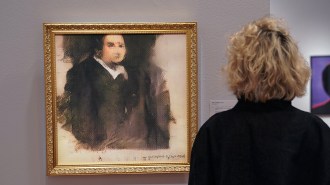 Computing
ComputingArtificial intelligence challenges what it means to be creative
Computer programs can mimic famous artworks, but struggle with originality and lack self-awareness.
By Richard Moss -
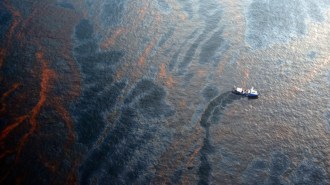 Oceans
OceansSunlight helps clean up oil spills in the ocean more than previously thought
Solar radiation dissolved as much as 17 percent of the surface oil slick spilled after the 2010 Deepwater Horizon explosion, a new study suggests.
-
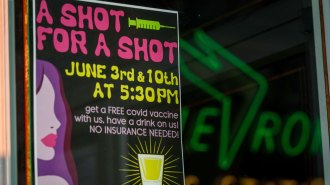 Science & Society
Science & SocietyNudge theory’s popularity may block insights into improving society
Small interventions that influence people’s behavior can be tested. But the real world requires big, hard-to-measure changes too, scientists say.
By Sujata Gupta -
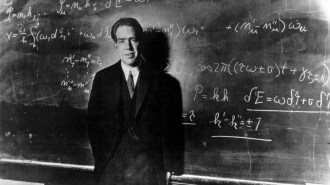 Quantum Physics
Quantum Physics‘From Data to Quanta’ defends Niels Bohr’s view of quantum mechanics
In his new book, philosopher Slobodan Perović corrects misconceptions about physicist Niels Bohr’s work.
-
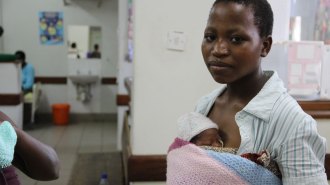 Health & Medicine
Health & MedicineChewing sugar-free gum reduced preterm births in a large study
Among 10,000 women in Malawi, those who chewed xylitol gum daily had fewer preterm births compared with women who didn’t chew the gum.
-
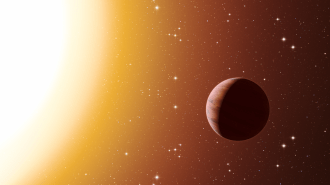 Astronomy
AstronomyHow ‘hot Jupiters’ may get their weirdly tight orbits
Gravitational kicks from other planets and stars can send giant worlds into orbits that bring them close to their suns.
By Ken Croswell -
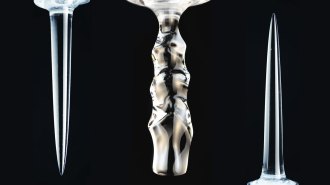 Physics
PhysicsFreshwater ice can melt into scallops and spikes
Ice submerged in liquid water can melt into three different shapes, depending on the water’s temperature.
-
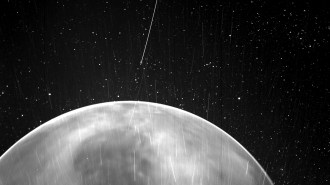 Planetary Science
Planetary ScienceThese are the first visible-light images of Venus’ surface captured from space
Cameras aboard NASA’s Parker Solar Probe managed to peer through Venus’ thick clouds to photograph the planet’s surface.
By Nikk Ogasa -
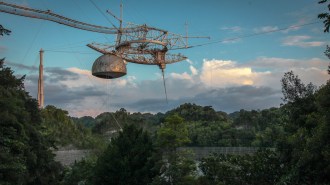 Planetary Science
Planetary Science50 years ago, Arecibo got an unprecedented view of Venus’ surface
Over its 57-year lifetime, Arecibo’s radar system measured the mountains around Venus’ middle, studied the textures of many rocky bodies in outer space and more.
-
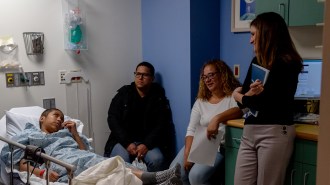 Genetics
GeneticsGene therapies for sickle cell disease come with hope and challenges
Pediatrician Erica Esrick discusses existing sickle cell treatments and an ongoing clinical trial.
-
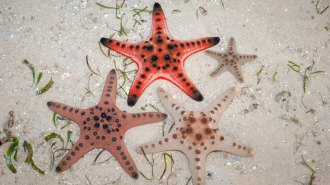 Animals
AnimalsA diamondlike structure gives some starfish skeletons their strength
Electron microscope images of knobby starfish’s calcite skeletons reveal an unexpected architecture that compensates for the mineral’s brittleness.
-
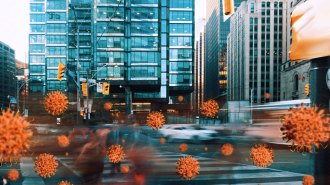 Health & Medicine
Health & MedicineOmicron crushed delta in the U.S. These numbers show just how fast it happened
It took the delta coronavirus variant eight weeks to make up more than 50 percent of new U.S. COVID-19 infections, estimates show. It took omicron two.